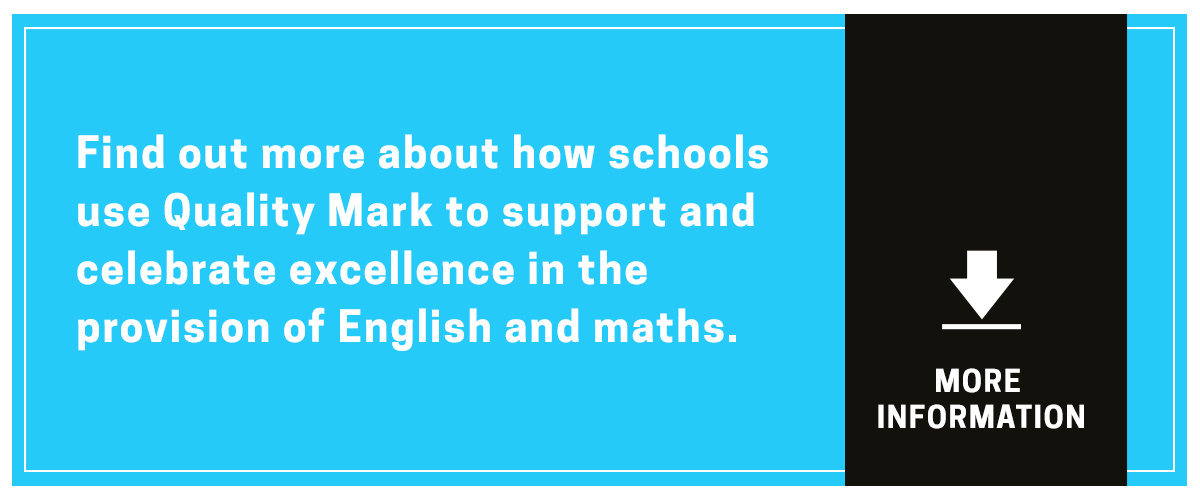Times might be challenging for school leaders right now, but it seems many are forging ahead with their commitment to continuous quality improvement, and giving their schools reason to celebrate at the beginning of the academic year.
Typically, one of the greatest challenges in schools for teachers and leaders is having the headspace to consider their improvement strategy and recovery plan. Against the backdrop of the COVID-19 crisis however, and in our capacity as Quality Mark assessors, we saw many of those teachers and leaders finding themselves without the usual issues and distractions synonymous with the day-to-day operation of a school, and as such able to turn their minds to the issue of quality.
Naturally schools’ approach to quality, to assessing the quality of education, has changed - they have had to transition to a different type of quality monitoring in the absence of in-situ learners and staff. So, we see senior leaders hopping on to virtual sessions and giving feedback afterwards. This may be about the quality agenda, or the virtual delivery agenda as many teachers report struggling to adapt to the virtual method of delivery. However, without that student interface they are unable to ask students the probing questions to glean their understanding of the learning objectives. Subsequently, we see a plethora of approaches when it comes to monitoring student feedback, depending upon the delivery model. It will therefore be important for schools to identify a baseline once the students are back in school to understand the degree to which each student has regressed or progressed.
To help our schools continue this ongoing re-evaluation of quality in the virtual landscape, we have moulded the Quality Mark English and maths accreditation process accordingly. Schools are still assessed on the same 10 elements that form the accreditation framework. However, the typical on-site visit to consider and evaluate their evidence has been moved to a virtual platform. No less robust than the legacy process, the accompanying structured virtual platform is used to assess and challenge that evidence base. These virtual accreditation meetings are recorded so any school leaders can go back to the session to review the evidence and conversation – this is proving to be a valuable resource to support external inspection or review partners looking at the school.
To have this professional dialogue as a permanent resource available to staff is a powerful tool further supporting how schools continue to build and grow leaders – staff can critique it themselves; they can see how they can improve when in they find themselves in situations similar to those identified and brought to the fore by the recorded evidence; and they can share their practice and experience with colleagues. So, the impact of the Quality Mark virtual accreditation reaches further and also has a longer shelf-life. Feedback about the updated process into the Quality Mark team has been not only positive but also very complimentary about the speed with which Quality Mark adapted. It really highlights how beneficial school leaders find a practical quality framework that can flex to their different models and changing needs.
For those that have been through this renewed process, they do not see themselves as just going through the motions of an existing framework. Teachers are so used to every day, every hour even, being different, that they are able, more so then many other sectors, to adapt to such quickly changed circumstances. So, their accreditation process isn’t a box-ticking exercise – Quality Mark has never been that anyway – but a valuable and pro-active step in their improvement journey, despite the backdrop of the pandemic. And because Quality Mark accreditation isn’t a snapshot (it’s about their evidence-base over time) schools continue to draw upon evidence from across the academic year since their last accreditation. These schools are really forward-thinking, focused on driving change, and focused on driving improvement. But it seems a huge driver for their continued commitment to their accreditation at this time is the desire to have something to celebrate when their school communities are back together.
We already know educators themselves tend to be creative, resilient and forward thinking anyway, so it’s no surprise to Tribal’s Quality Mark team that we are still witnessing schools looking at how they can continue to achieve; continue to bring about positive change; and continue to have cause for celebration. So, we join them in their celebration of their school and their staff, and send them our best wishes and respect as they continue to influence positive outcomes for their learners.
WATCH: An introduction to Quality Mark
Quality Mark's National Director, Nicola Morris, gives an overview of the internationally acknowledged accreditation programme for the improvement of English and maths provision, including: how it guides sustainable continuous improvement; what it means for your stakeholders; an outline of the audit tool, and details of the support mechanisms to help you on your organisation's improvement journey.
TOPICS:
SHARE THIS ARTICLE:




